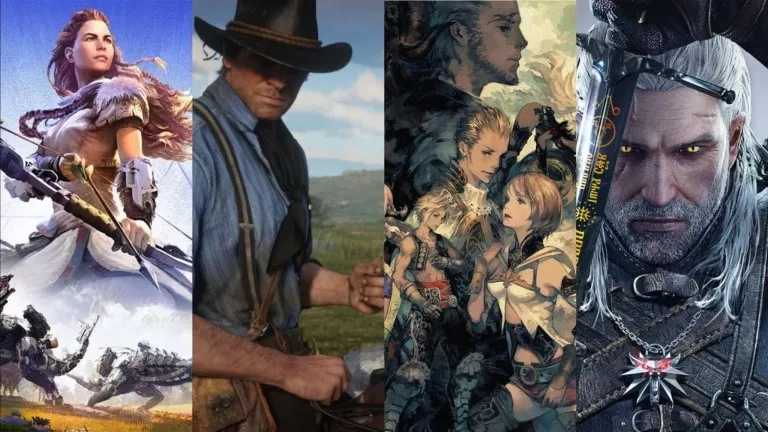Discover the most captivating video game narratives ever crafted, ranging from grandiose epics to intimate tragedies.
While many still find it strange to play video games for their narratives, the notion that games cannot tell compelling stories is outdated and gradually diminishing. However, it appears that more people are beginning to recognize that video game stories can be exceptional, rather than acknowledging the multitude of already outstanding video game stories.
If you are reading this, chances are you already understand that great video game stories have existed since the inception of video games. Nonetheless, it is important to pause and truly appreciate the diverse, essential, and often unique stories that gaming has offered us over the years.
That is precisely what this list aims to achieve. We tasked a group of Spot.Monster contributors with the impossible mission of selecting the best video game stories ever, not to imply that there are only 35 exceptional ones, but to commemorate the fact that even the greatest stories merely scratch the surface of what video games can offer.
Yakuza 0
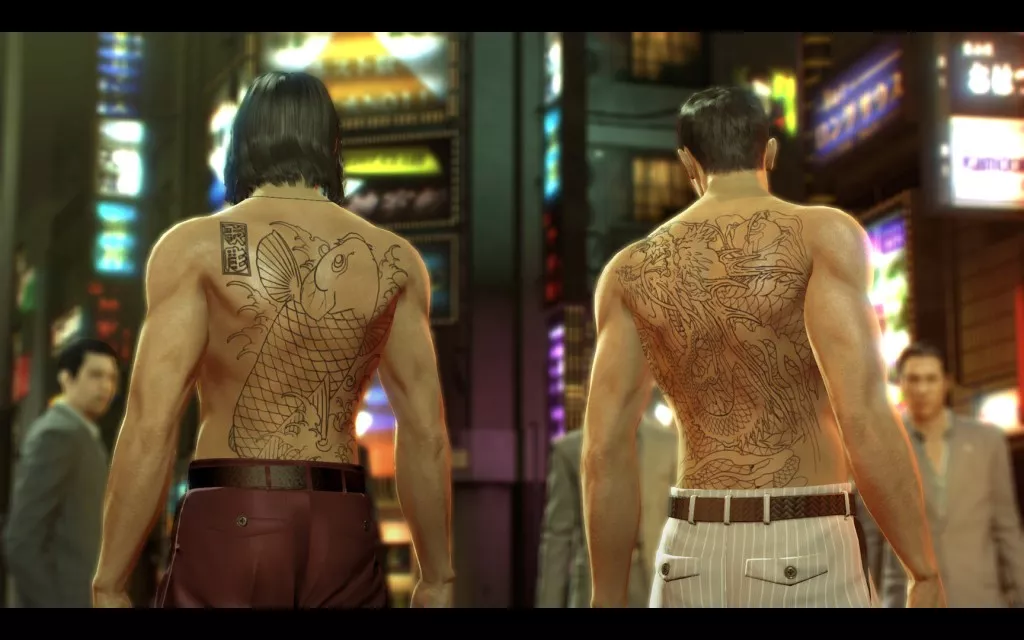
In 2005, the Yakuza series made its debut on the PlayStation 2 and introduced players to a cast of characters that included Kazuma Kiryu and Goro Majima, among many others. However, it hinted at a history that fans didn’t get to see until 2015. Nevertheless, the wait was worthwhile.
Yakuza 0 offers players a glimpse into the early days of series staples Kiryu and Majima, illustrating how they rose to become yakuza legends in the previous games. Their tales unfold like a Godfather-esque crime drama, replete with treachery and codes of honor, but enlivened with action scenes that could have come straight out of an anime. Furthermore, Yakuza 0’s world is replete with side stories that provide a good dose of humor to balance out the seriousness.
While Yakuza 0’s pacing is not as quick as its action, when the narrative gains momentum, you’ll be eager to see more.
Ghost of Tsushima
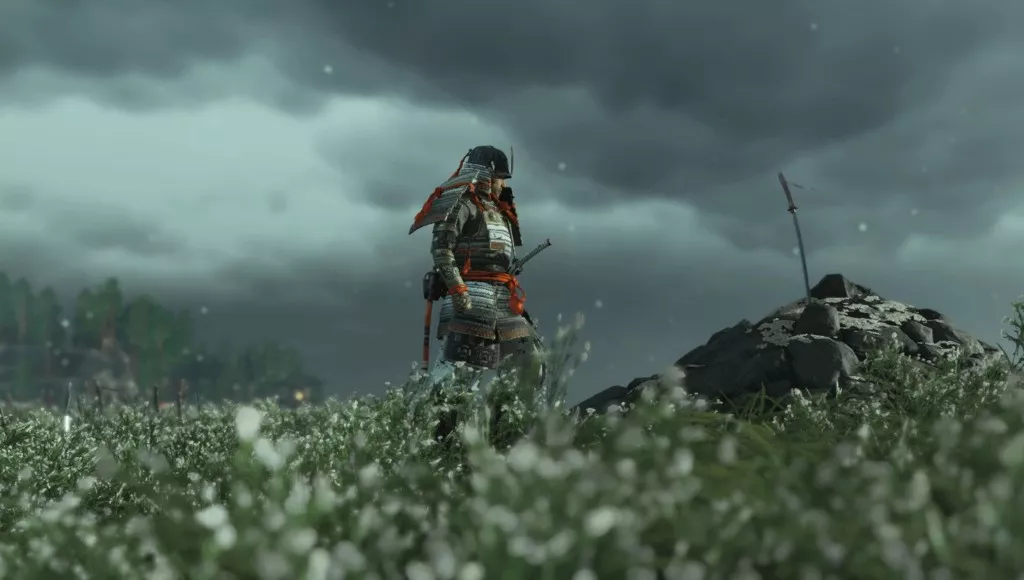
In many modern open-world games, the plot is often viewed as simply a tool to motivate the player to explore the game’s environment. However, in Ghost of Tsushima, the story of Jin Sakai is inseparably linked with the war-torn island that the game takes place on. Jin reveres the land he is compelled to fight on, and this convergence of narrative and gameplay is what gives the game its sense of artistry and coherence.
Jin’s odyssey raises profound psychological inquiries about honor and allegiance in a manner that is more sophisticated and philosophical than what is typically encountered in such games. The creators at Sucker Punch invested their hearts and souls into this moving samurai epic.
Dead Space
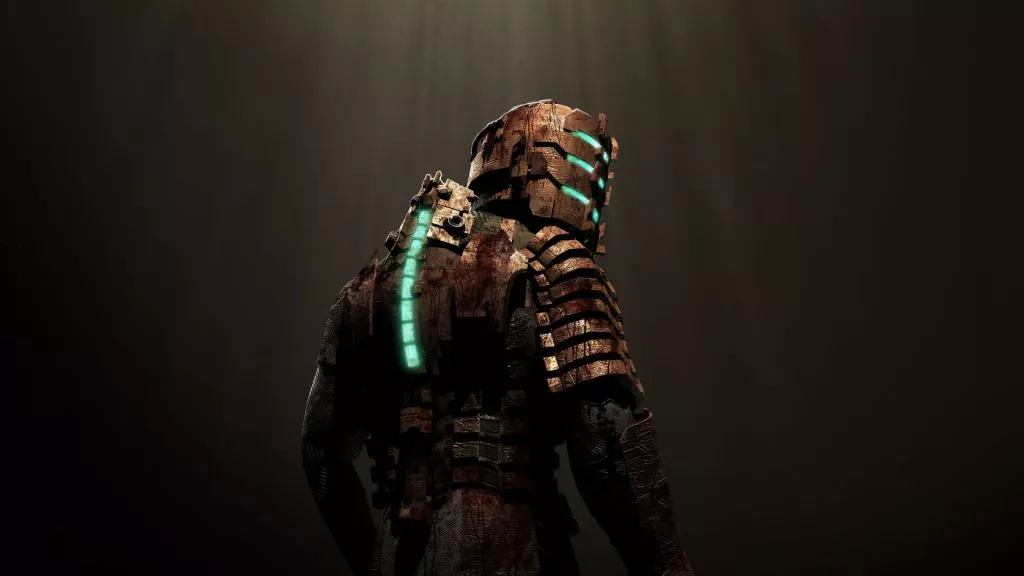
Dead Space is filled with references to classic sci-fi and takes place after a Lovecraftian version of the events in 2001: A Space Odyssey has already started reshaping humanity into something monstrous.
The game excels in bringing us close to protagonist Isaac Clarke, watching over his shoulder like a concerned guardian angel as he faces horrors spawned from the darkness of an unknown universe that tear his life apart. An immersive heads-up display strengthens our bond with Clarke as he confronts a series of frights and tragedies that gradually erode his sanity. With a wealth of intriguing and genuinely terrifying lore, Dead Space is as iconic a horror tale for video game enthusiasts as Alien is for film aficionados.
Braid
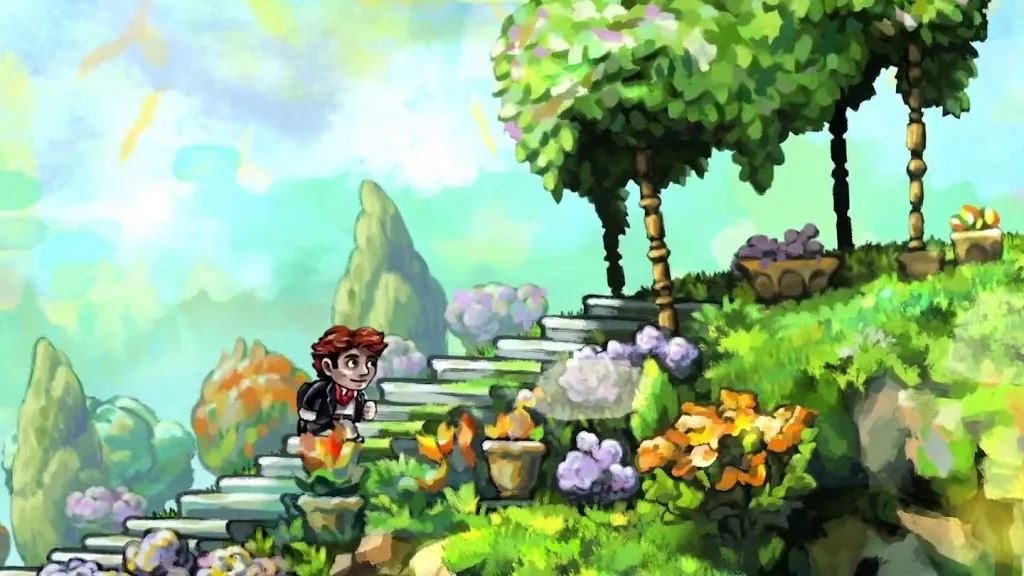
Braid revolves around the tale of a boy and a girl, where the boy sets out to rescue a missing princess. At face value, this narrative doesn’t necessarily stand out. After all, Super Mario Bros. doesn’t make the cut for a reason.
But for those who have played Braid, the boy is portrayed as a type of monster who has transformed himself into the hero of his own story. Perhaps the entire game serves as a complex metaphor for Oppenheimer’s story and the making of the atomic bomb. Regardless of interpretation, Braid is a stunning example of subversion. It could be challenging the clichés of an entire medium, or it could be urging us to recognize the biases that arise when participating in a story. At the very least, Braid helped establish that exceptional gaming narratives needn’t be confined to big-budget, cinematic experiences or conventional epics.
The Legend of Zelda: Majora’s Mask
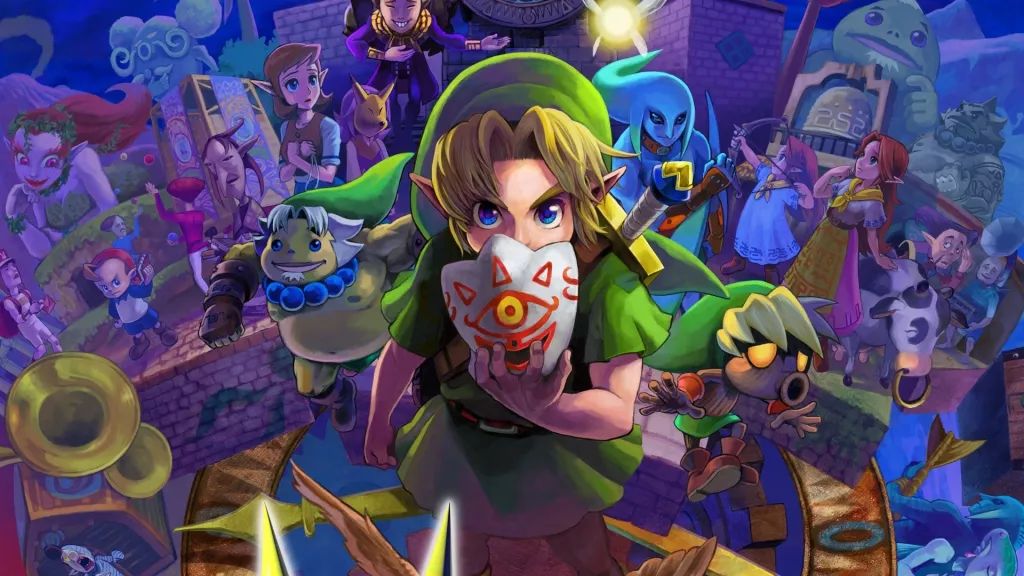
Although the Legend of Zelda series is considered outstanding, its narratives frequently boil down to “Link rescues Hyrule from Ganon.” However, Majora’s Mask distinguishes itself by entirely omitting Hyrule and Link’s arch-nemesis, resulting in a memorable experience.
Right from the outset, Majora’s Mask instills a sense of anxiety and impending destruction. A smiling moon looms above, reminding players that the world will end in 72 hours, irrespective of Link’s actions, at least until he resets the timeline by going back in time. While it has become more popular for games to incorporate time loops and doomsday scenarios like this, Majora’s Mask was among the earliest to do so and remains one of the best examples.
Firewatch

Firewatch tells the tale of a fire lookout who finds himself wandering the woods soon after starting his new job. Its potency lies in its simplicity and focus. Henry and Delilah’s interactions via walkie-talkie are among the most superbly crafted video game dialogues ever written, and the mystery they gradually unravel is heightened by their emotional long-distance relationship.
What lends depth to the story is the palpable yearning to see these two characters meet in person, intensified by the seclusion of their jobs as fire lookouts, which grows increasingly oppressive as the story unfolds. The discussions with Delilah are so captivating that when you lose contact with her for an extended period in the game, the silence over the radio is almost unbearable.
Final Fantasy 9
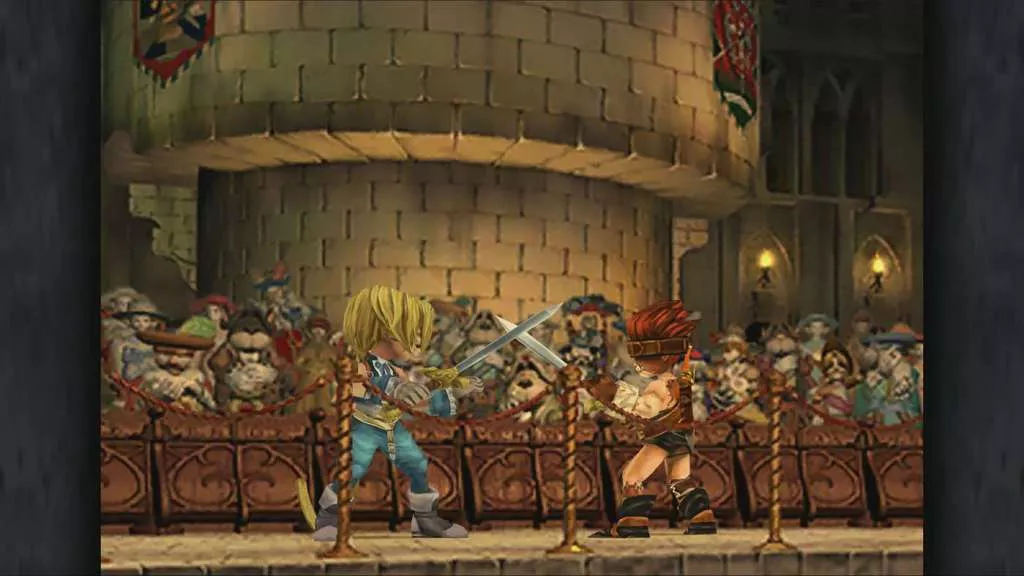
Final Fantasy 7 propelled the series into the mainstream but also initiated a shift in Final Fantasy games away from the fantasy genre. Final Fantasy 9, on the other hand, was intended to be a return to the roots of the series while retaining the storytelling lessons Square had learned from recent entries.
As per Final Fantasy tradition, Final Fantasy 9 features a diverse cast of characters, and the majority of the narrative revolves around them. Almost every character is relatable in some way, and players witness their growth and development, not just through the primary story but also through optional cutscenes that add depth to their personalities. Arguably, the most outstanding characters in Final Fantasy 9 are Zidane, Steiner, Garnet, and Vivi, not only because of their distinct personalities but also because their backstories play a significant role in the primary narrative.
Final Fantasy 9 demonstrates that sometimes, the story of the characters leading a game is all it takes to create a compelling narrative.
Spec Ops: The Line
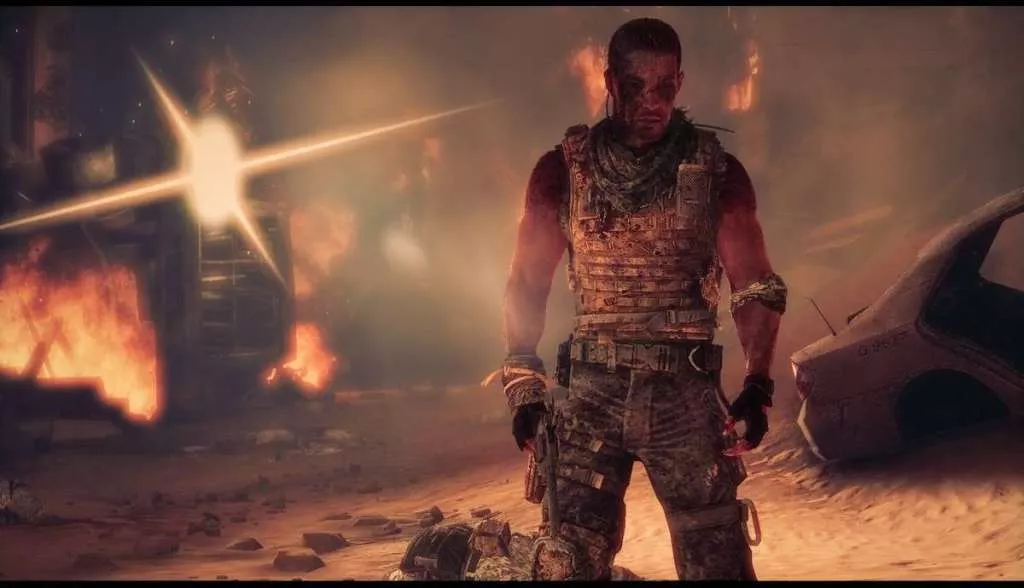
Spec Ops: The Line takes a unique approach to military-themed video games by questioning the heroic portrayal of playable characters and their actions. Rather than casting the protagonist as a hero, the game explores the idea of a protagonist who is just as flawed as the villain. This raises the question of whether the player, by taking their side, is equally responsible for their actions.
In the game, players control Captain Martin Walker, who is sent on a mission to rescue Colonel John Konrad in a Dubai devastated by sandstorms. As the game progresses, the mission becomes a fight for survival, and the characters’ loyalties and sanity are tested. The game’s narrative deconstructs war, and its gameplay intentionally mimics military shooter games, making every decision feel like the wrong one, whether players choose who to kill or are forced into difficult situations.
One of the most powerful examples of this style of storytelling is the white phosphorus scene, which challenges players’ moral compasses in a way that is both thought-provoking and unsettling. The game’s ability to use conventional action gameplay design as a means of exploring complex moral issues is a remarkable achievement, elevating the game beyond a typical military-themed shooter.
Final Fantasy 12
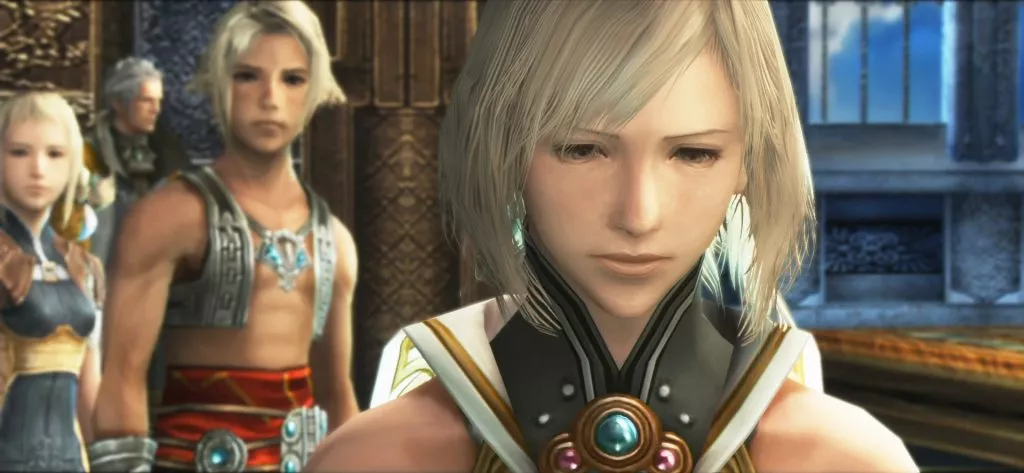
In Final Fantasy 12, the world of Ivalice is a diverse and troubled place, much like Westeros. The game takes place during a time of high magic and political turmoil, as a power struggle results in the transformation of Dalmascan princess Ashe into a vengeful rebel. However, for commoners like Vaan, life on the streets remains as difficult as ever.
Despite these seemingly disparate worlds, fate eventually brings them together, revealing a complex story about the power of free will. The game explores how the desire for control can lead even the most powerful beings to seek domination over those they consider inferior. While the plot may be intricate, the game’s fine pacing and exceptional localization ensure that everything comes together cohesively, culminating in a satisfying final boss battle. Ultimately, Final Fantasy 12’s Ivalice is a richly detailed and thought-provoking world that offers players a rewarding gaming experience.
Metal Gear Solid 3
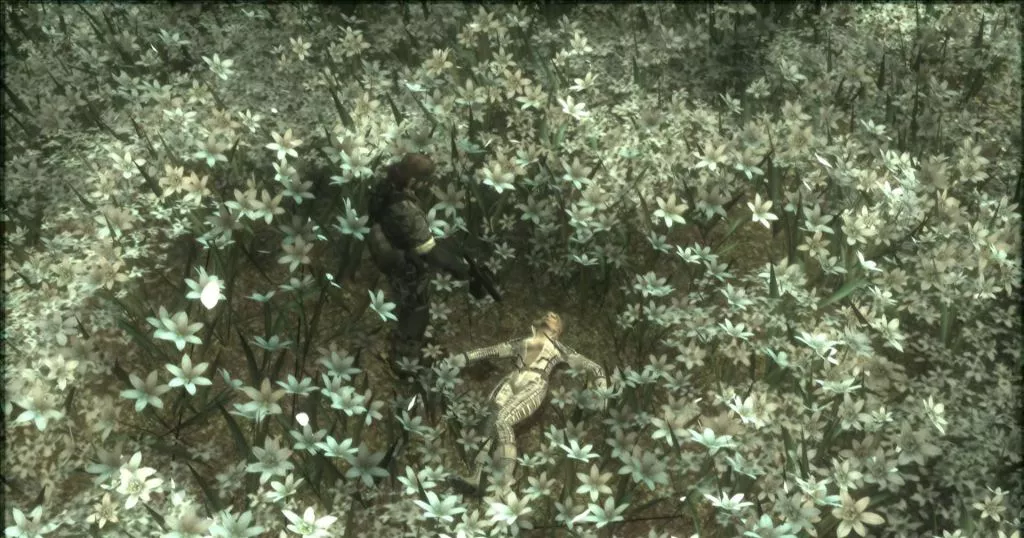
While some may consider Metal Gear Solid 3 a straightforward entry in the MGS series, there is still plenty of heart and creativity present in its narrative. Unlike MGS 2, which delved into meta-storytelling and social commentary, and MGS 4, which featured lengthy cutscenes, MGS 3 strikes a balance between its classic Kojima weirdness and a more grounded, Apocalypse Now-inspired story.
The game follows soldiers who must grapple with the difficult decision of fulfilling their duty versus preserving their humanity, resulting in a complex exploration of the consequences of war. Additionally, MGS 3 weaves in a thrilling conspiracy narrative that further adds to the already intricate gaming mythology of the series. Overall, while MGS 3 may not be as overtly ambitious as its predecessors, it still manages to deliver a compelling and thought-provoking gaming experience.
Hades
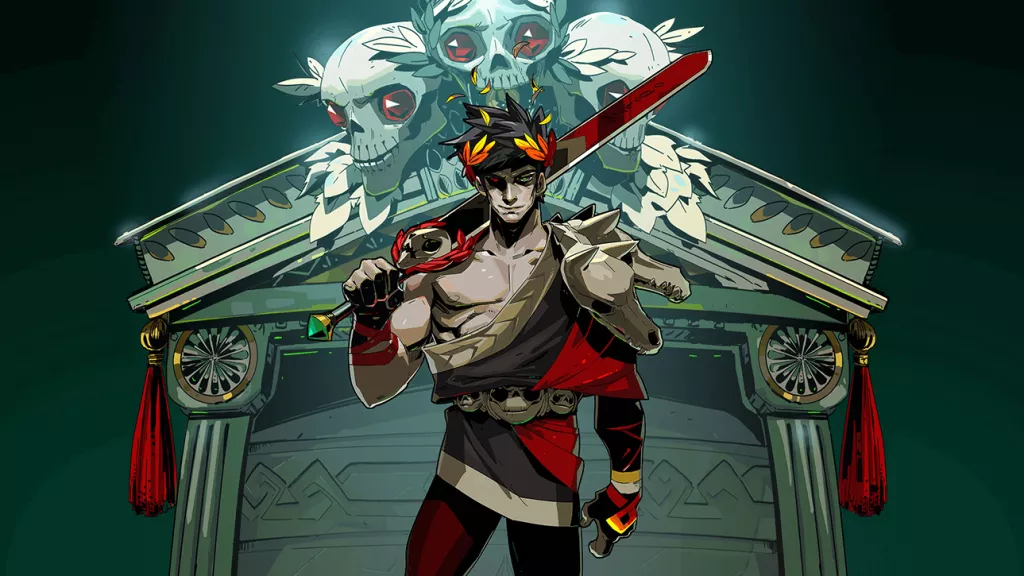
Roguelike games are not typically known for their complex and emotionally rich storylines, given their procedural generation and chaotic gameplay. However, Supergiant Games defied expectations with Hades, which uses the game’s often brutal, short playthroughs to tell a story about family and the secrets and pain that loved ones can hide from each other.
Drawing from Greek mythology, the game explores forgotten lore with an empathetic lens. The game’s visuals are stunning, even in the midst of repeated failures as our hero meets their end yet again. The story is expertly paced, leaving players eager to dive back in and uncover more about the game’s fraught family relationships and the noble futility of their Sisyphean task.
Overall, Hades is a masterclass in storytelling within the roguelike genre, delivering a captivating and emotionally resonant experience that is as satisfying as it is challenging.
Final Fantasy 6
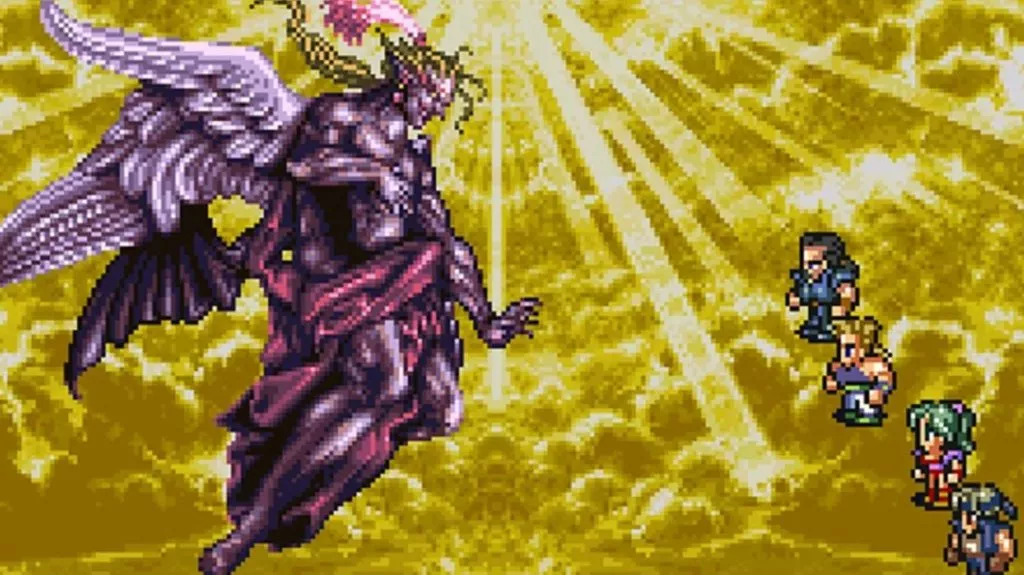
In the 1990s, RPGs largely adhered to a traditional formula where a party of heroes united to save the world. Final Fantasy VI starts off similarly, albeit with impressive world-building and set pieces along the way. However, just as players settle in for another expertly executed but predictable adventure, something unexpected happens – the villain triumphs. And he doesn’t just win – he triggers the end of the world. Though he had his reasons, he mainly did it because he could.
The remainder of the game is spent exploring the ruins of that world, reuniting with allies, and this time, gearing up for the ultimate final showdown. Above all, Final Fantasy VI explores the theme of hope in the face of overwhelming adversity, and its famous twist effectively conveys that message, making it arguably the best story in the series.
Mass Effect 2
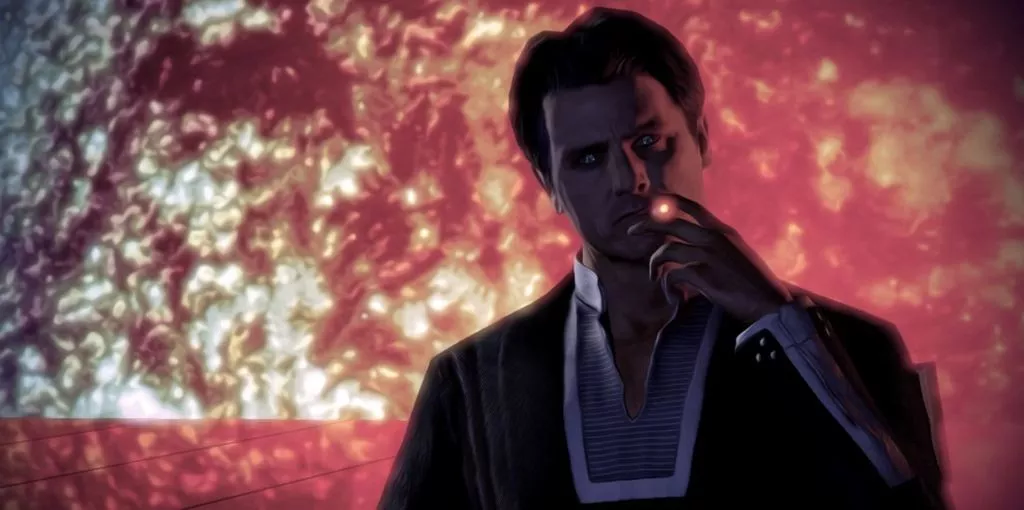
The quality of an RPG story often depends on the characters that drive it, and Mass Effect 2’s party of misfits is among the best in gaming history. Every member has a fascinating backstory and brings a unique dynamic to the group. While the overarching sci-fi narrative is excellent, it’s the individual stories of the party members that truly set this game apart and make it endlessly replayable. The game’s exceptional “loyalty missions” delve into each character’s arc, from Jacob’s unexpected reunion with his father to Grunt’s rite of passage into the Urdnot clan, to Tali’s heart-wrenching trial, captivating players and drawing them deeper into the game’s world.
Red Dead Redemption 2
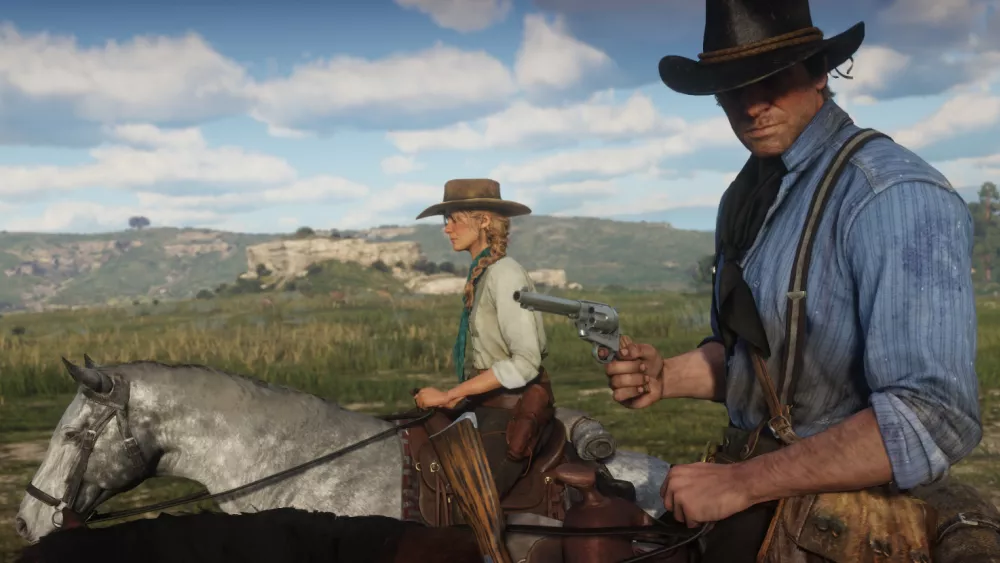
Red Dead Redemption 2 is to McCabe and Mrs. Miller, Deadwood, and Blood Meridian what the original was to The Good, The Bad, and The Ugly, Rio Bravo, and High Noon. It meticulously examines and deconstructs the Western genre, displaying a simultaneous fascination and horror with the era and the narratives woven within it.
While Arthur Morgan’s tale leads to the events of Red Dead Redemption, it would be a disservice to label this game as merely a prequel. It’s an account of desperation and the individuals (and nation) that arose from it. We sense that we join the Van der Linde gang in their final days, but nothing can brace us for their devastating declines, the stories they create along the way, or how we grow to care for the doomed and the damned as if they were anything other than that.
Persona 5
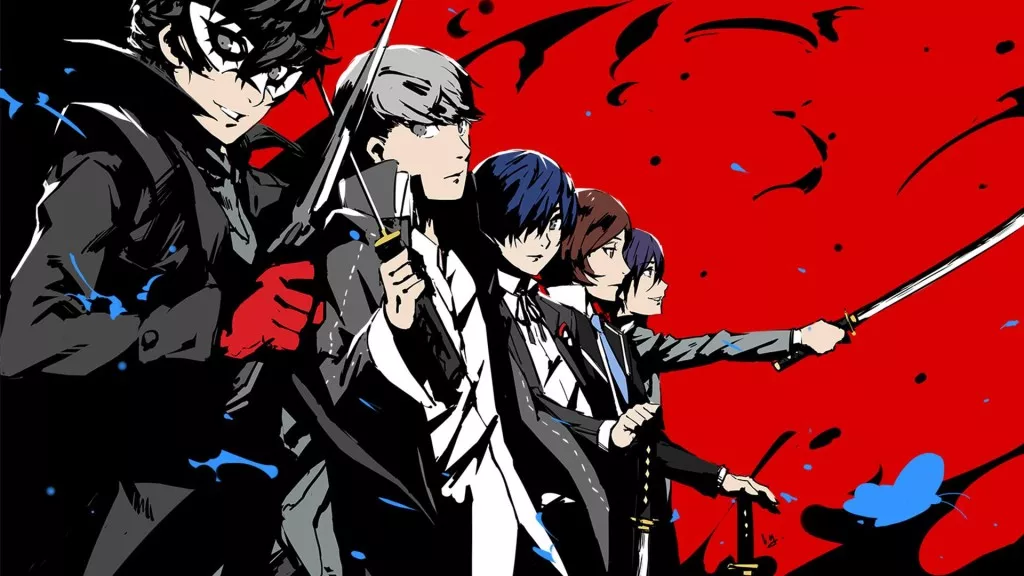
Despite being occasionally hindered by typical rheumy JRPG tropes, Persona 5’s earnest themes remain uncompromised. The protagonist, codenamed Joker, becomes embroiled in a supernatural battle to liberate Tokyo’s chained hearts from the restrictive social norms that enable the powerful, metaphorical palace-dwellers to prey on the vulnerable. Persona games always convey a profound message, and Persona 5 recognizes that individuality is critical to Japan’s future. With an array of personae featuring more trickster archetypes than usual, even including Arsene Lupin himself, Persona 5’s passionate storytelling makes us forget that we’ve once again become enamored with a spirited gang of high school students.
Undertale
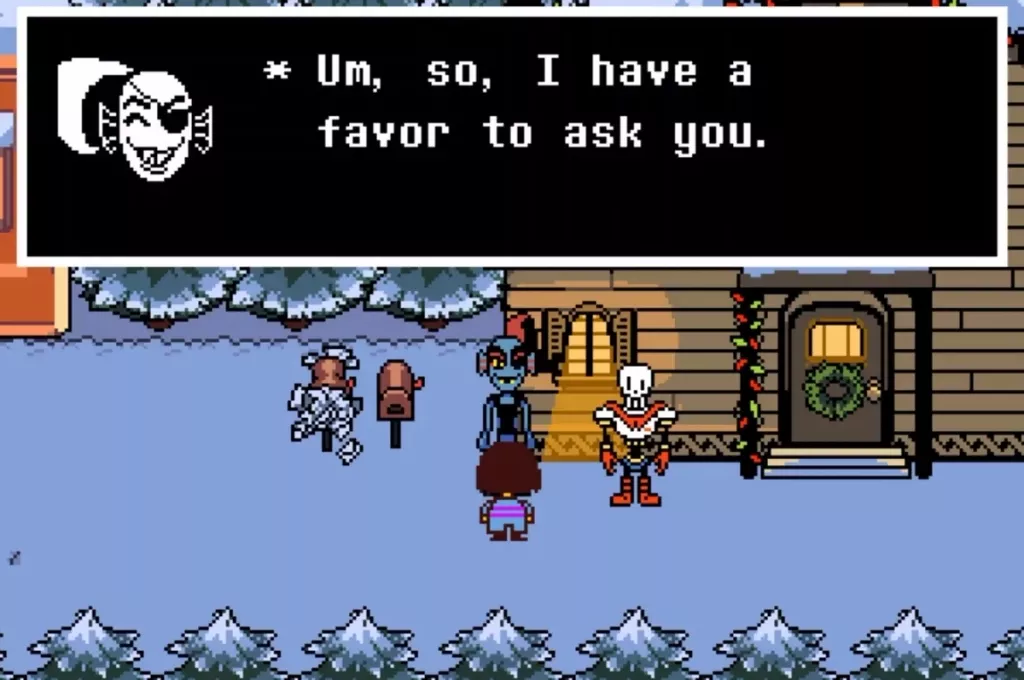
Undertale’s story is challenging to discuss with complete certainty, owing partially to the game’s intricate themes and expansive narrative. However, much of Undertale’s tale unfolds in the manner you encounter it, making it difficult to encapsulate. The game frequently introduces new expectations only to immediately subvert them, and a mere Wikipedia summary fails to do it justice. Your gameplay choices will affect your perception of the story.
What I can confidently say is that Undertale is amusing. While that may appear to be a strange attribute to emphasize in the context of the greatest gaming narratives, genuinely humorous games are uncommon. Furthermore, few (if any) other games employ humor to engender an emotional attachment to a game’s world, characters, and journey as effectively as Undertale. The love that this game’s devoted fanbase has for it is surpassed only by the devotion invested in its creation.
Horizon Zero Dawn
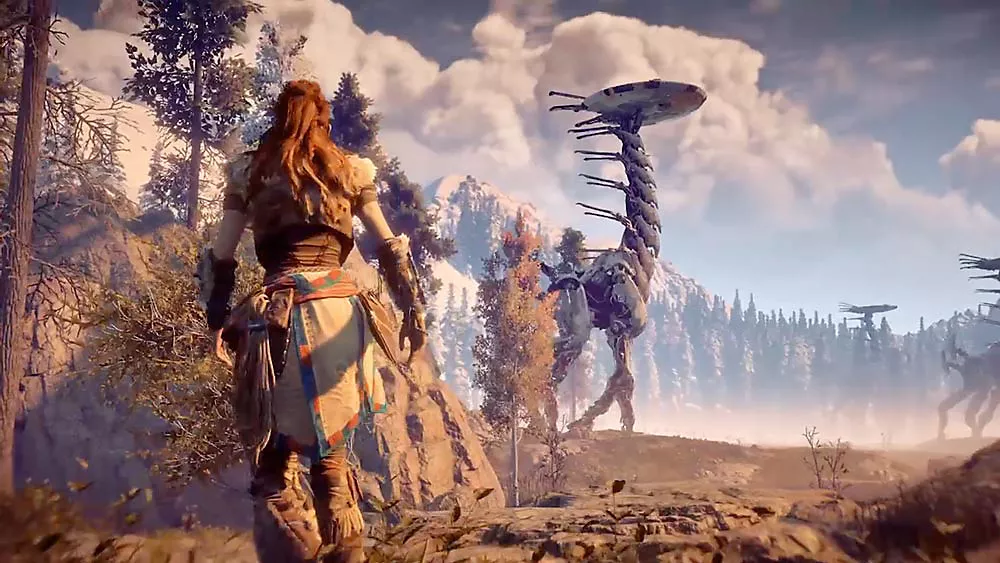
Horizon offers a truly captivating post-apocalyptic world that seamlessly combines elements of primitive humanity with visually stunning animalistic machines. This unique blend creates a gaming experience that is not only visually appealing but also highly immersive, making it difficult for players to resist getting drawn into Aloy’s journey. The game’s stunning visuals and enjoyable gameplay mechanics contribute to its overall appeal, keeping players engaged and invested in the story.
One notable aspect of Horizon is its ability to balance moments of kindness and tragedy. From the beginning, the game introduces both heartwarming encounters and devastating events, creating a rollercoaster of emotions for players. This emotional depth adds another layer to the narrative, making it more compelling and impactful.
As the game progresses, players become increasingly emotionally invested in uncovering the lore of humanity’s past and the role played by the enigmatic robots. These scraps of lore not only serve to expand the story but also provide insights into the downfall of civilization and the consequences of humanity’s actions. The incorporation of symbolic fragments of Egyptian mythology further enriches the narrative, adding a layer of depth and mystery to Aloy’s quest.
One of Horizon’s greatest strengths lies in its protagonist, Aloy. Throughout her journey, she undergoes a remarkable transformation, evolving from a curious and determined outcast into a captivating and inspiring hero. Aloy’s resilience, intelligence, and unwavering determination make her a relatable and likable character, compelling players to root for her success and become emotionally invested in her story.
Overall, Horizon’s combination of a visually stunning world, a well-crafted narrative with moments of both kindness and tragedy, and a captivating protagonist in Aloy creates an unforgettable gaming experience. It’s no wonder that players find themselves irresistibly drawn into the game, eager to explore its intricacies and see Aloy’s journey through to its conclusion.
NieR Automata
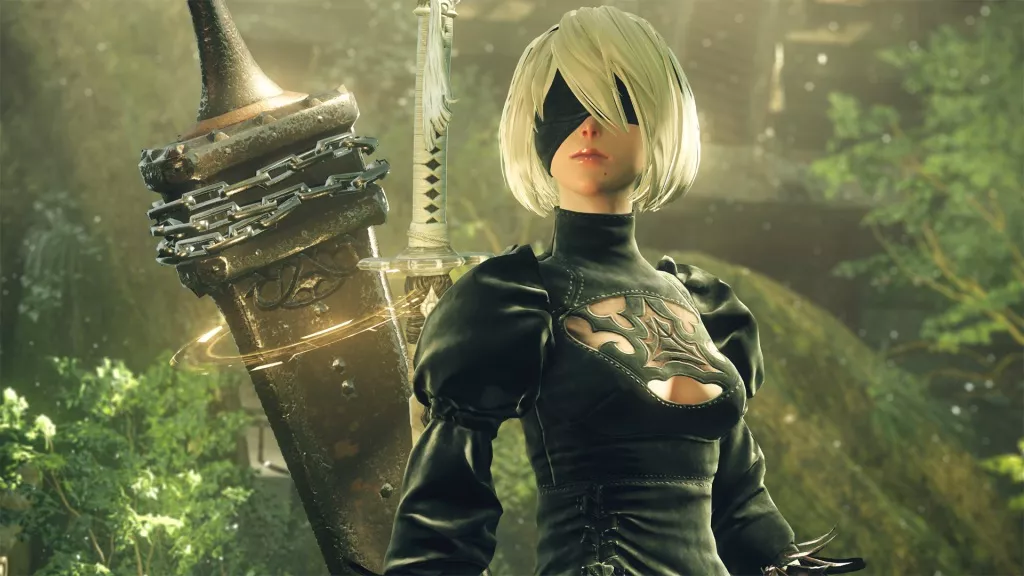
In contrast to traditional hack-and-slash games, NieR Automata breaks the mold by offering a rich and thought-provoking narrative alongside its action-packed combat. While many games in the genre prioritize gameplay over story, NieR Automata defies expectations by delivering a compelling and multi-layered plot that explores themes of identity, purpose, and companionship.
At the beginning of the game, players assume the role of 2B, a combat android assigned to protect humanity from hostile alien robots. However, as the story unfolds, it becomes clear that there is much more at stake than initially meets the eye. The narrative takes unexpected twists and turns, delving into complex concepts and presenting players with philosophical questions to ponder.
What sets NieR Automata apart is its ability to engage players beyond the initial playthrough. The New Game + mode introduces a fresh perspective on previous events, unveiling new layers of the story and offering a deeper understanding of the game’s world and characters. Additionally, a second New Game + mode adds even more context and story content, providing a satisfying and fulfilling conclusion to the narrative.
Regardless of players’ preferences, whether they seek a moving storyline, engaging gameplay, or stylish action, NieR Automata delivers an unforgettable gaming experience that should not be overlooked. It combines all these elements seamlessly, resulting in an immersive and essential experience that resonates long after the game is completed. NieR Automata sets a new standard for hack-and-slash games, demonstrating that the genre can offer much more than mindless hacking and slashing.
Grim Fandango
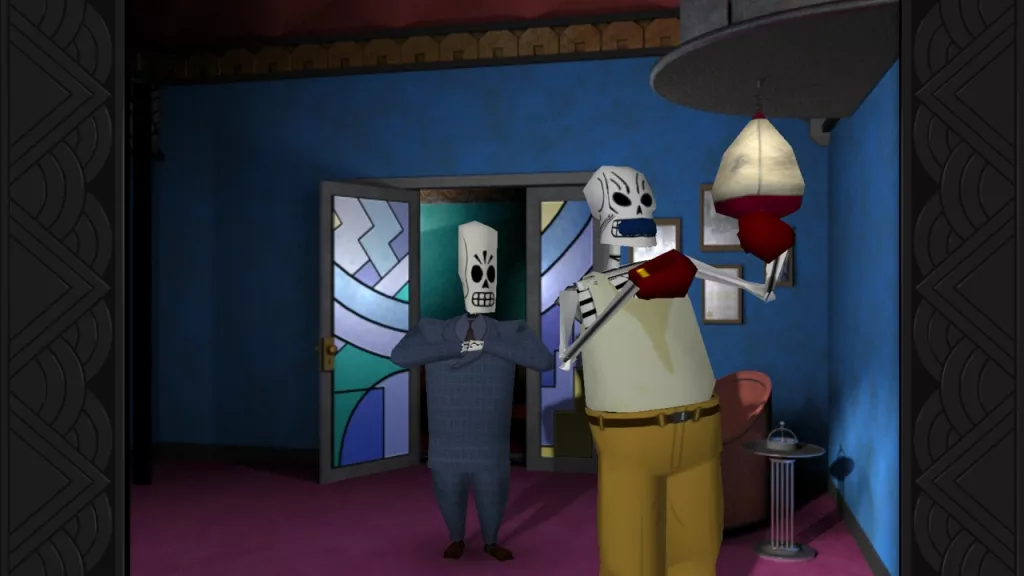
Grim Fandango, Tim Schaefer’s brainchild, was a stroke of genius. This noir story, set in an Aztec afterlife reminiscent of the Maltese Falcon, is populated with charismatic characters who defy genre archetypes, thanks to witty writing, exceptional voice acting, and iconic character designs that remain impressive to this day.
Manny Calavera and his friend Glottis embark on a four-year adventure to save the kind-hearted Meche, filled with lies and deception, as any good noir story should. However, what sets Grim Fandango apart is its clever humor, four-act structure, and imaginative twists on noir and Day of the Dead themes. This combination results in one of the most creative and beloved adventure game stories ever told.
Fallout: New Vegas
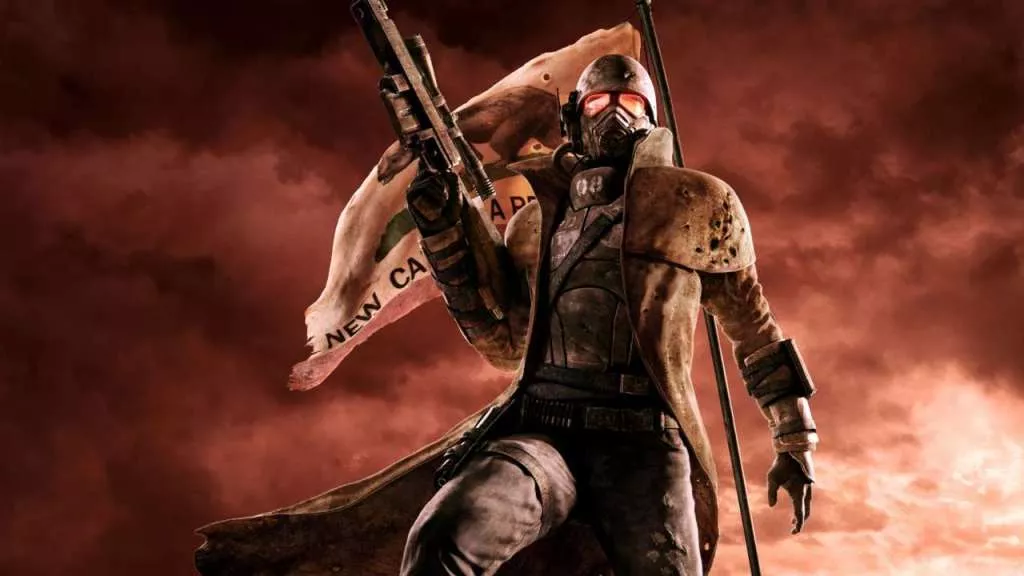
In RPGs, the player character is often portrayed as the most significant figure, with various genre tropes, such as prophecies and chosen ones, emphasizing their uniqueness. However, New Vegas subverts this convention by openly stating that the player character is not that special or important in the grand scheme of things. The game presents a world that is indifferent to chaos, leaving the player to determine their own fate.
Despite this, New Vegas manages to make the player character feel crucial to the story in a way that other RPGs do not. Since the player has no predetermined destiny, every decision they make carries weight and can have unexpected consequences. The game’s writing is excellent, ensuring that each choice feels like the only one that matters. From the beginning, where the player character wakes up after being shot in the head and left for dead, they are thrust into a complex web of cause-and-effect relationships that can have a significant impact on the game’s outcome.
BioShock
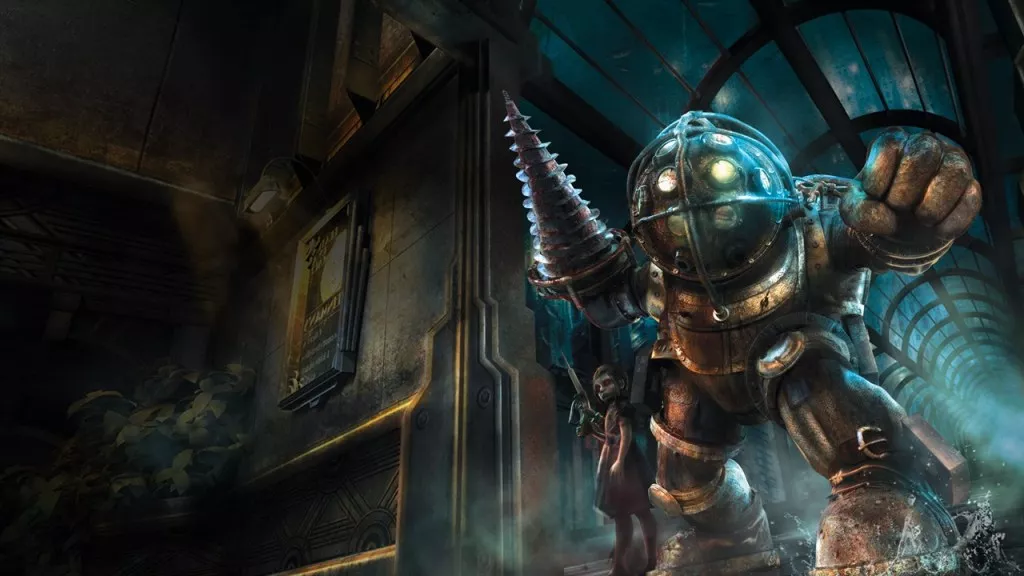
Bioshock’s world-building is masterfully crafted and forces players to ponder selfishness and the failures of utopianism. However, what sticks in most people’s memories is the infamous phrase “Would you kindly?”
This three-word phrase cements Bioshock as one of the greatest gaming stories ever told. At first, it’s dropped so casually that players don’t give it much thought. It merely seems like a throwaway line that fits well with the game’s ’60s aesthetic. However, upon confronting the game’s main antagonist, Andrew Ryan, players learn that it’s not just harmless dialogue but a hypnotic trigger that controlled their actions for most of the game. This mind-bending twist is genuinely shocking and recontextualizes an already incredible adventure.
I Have No Mouth, and I Must Scream
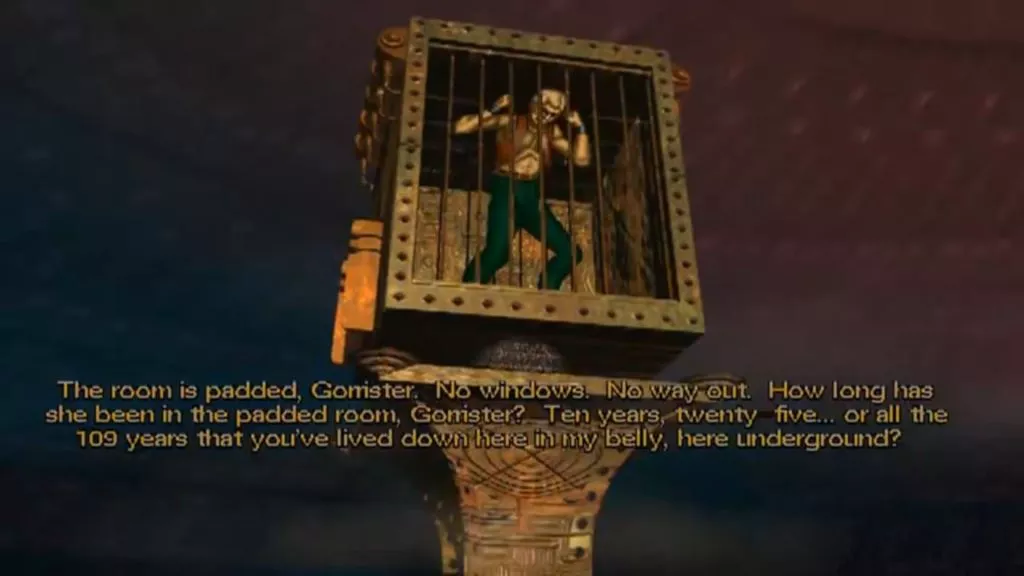
The Harlan Ellison short story that inspired the video game adaptation of I Have No Mouth, and I Must Scream is a compelling sci-fi dystopian epic that explores trauma and the human spirit’s resilience in disturbing and twisted ways with the famous quote “I think, therefore I AM.”
However, Cyberdreams and The Dreamers Guild developers took the source material to new heights by immersing players in the characters’ trauma and guiding them through their individual trials, all orchestrated by the sadistic supercomputer AM. This adventure game, which is nearly three decades old, remains a remarkable example of how video games can enhance and elevate stories in ways that other media cannot.
Red Dead Redemption
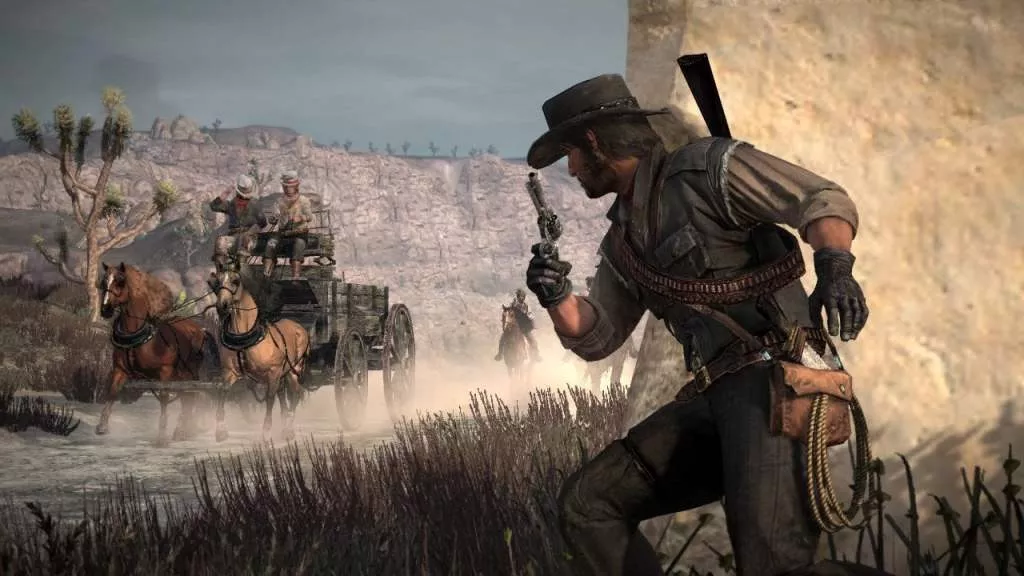
Red Dead Redemption, a thrilling open-world game, delves into a weighty issue: whether a man can genuinely transform his ways and break free from his violent past. This topic is as captivating as the ones explored in the best Old West books or movies.
The protagonist, John Marston, is a retired outlaw who seeks a peaceful life with his family. However, federal agents disrupt his plans by enlisting him to track down his former gang members. Despite initial comparisons to “Grand Theft Auto with horses” due to the shared developer and vast game world, Red Dead Redemption stands on its own with a superior storyline. It’s a historical masterpiece that examines the inevitable progression of society, the loss of autonomy, and, ultimately, redemption or the absence thereof.
Shadow of the Colossus
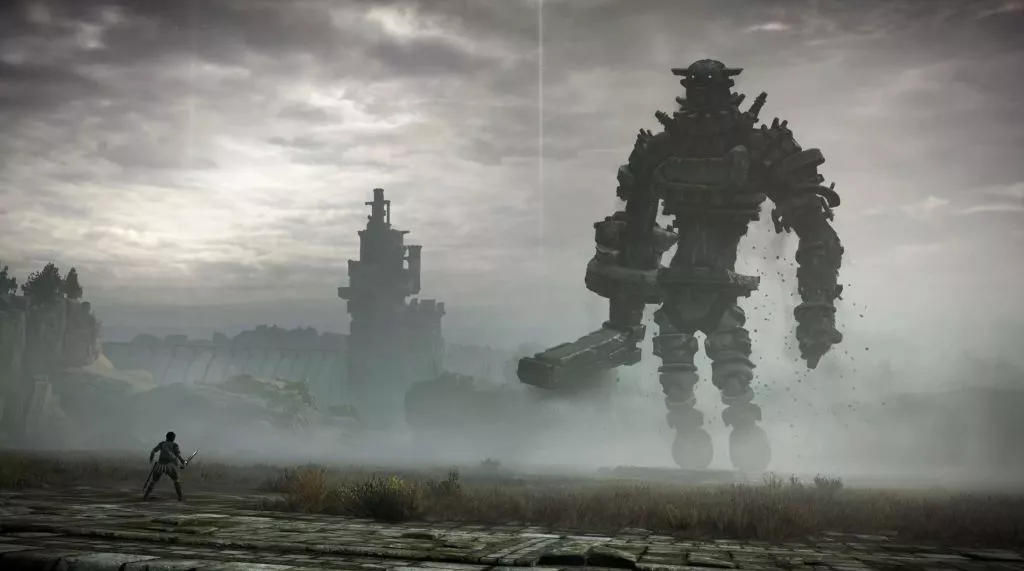
Shadow of the Colossus provides only a brief outline of a narrative through a handful of cutscenes. A young man pleads with an imprisoned deity to resurrect a deceased girl, while a group of warriors led by a mystic trail behind to halt the ritual. Despite the scarcity of explicit storytelling elements, the game employs environmental storytelling to create a grander experience.
The Forbidden Lands are replete with ruins that hint at a lost civilization. Dormin’s insistence on slaying the colossi raises unanswerable questions. The dire warnings from the narrator force players to determine if he is genuinely the hero. The only link to its predecessor, ICO, is through wordless connections. Ultimately, each player forms their own interpretation of the game’s events. The silence is magical.
God of War (2018)
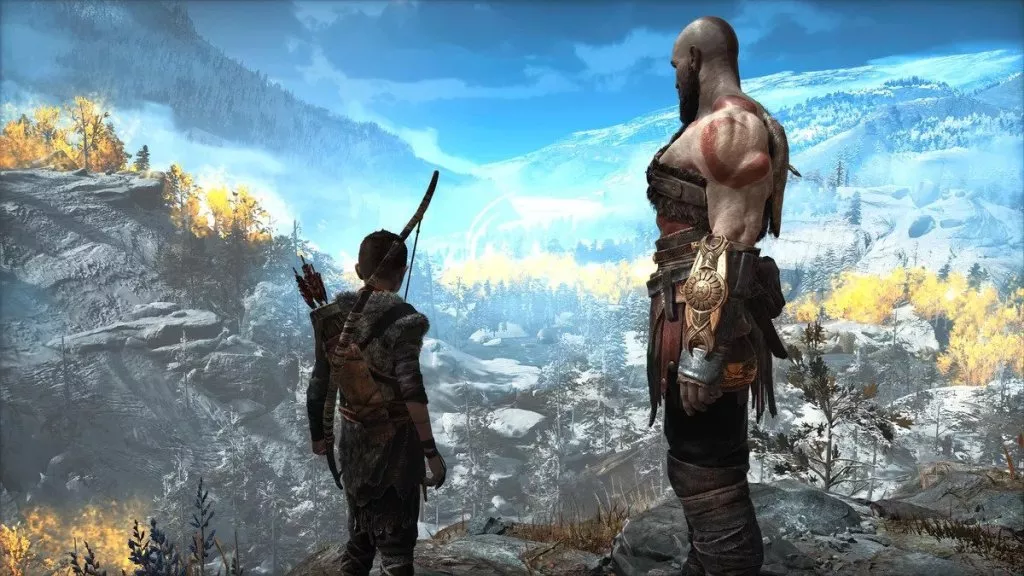
Throughout its history, the God of War games have been renowned for their action-packed gameplay rather than their storytelling. Although the narratives were not necessarily poor, they failed to measure up to the gameplay. However, the series’ soft reboot altered this perception.
In God of War (2018), Kratos embarks on a journey to scatter his deceased wife’s ashes from the highest peak in existence. However, his mission is complicated by the presence of his son, Atreus, and the emotional distance between them. As the story unfolds, the game transforms into an enthralling road trip tale where Kratos not only tries to bond with Atreus but also confronts his past and grapples with his legacy.
While God of War (2018) stands on its own as a great story, players familiar with the series’ history will appreciate it even more. The game offers an astonishing reimagining of the franchise’s mythology that feels both integral to the overall narrative and a clear standout in its own right.
The Witcher 3: Wild Hunt
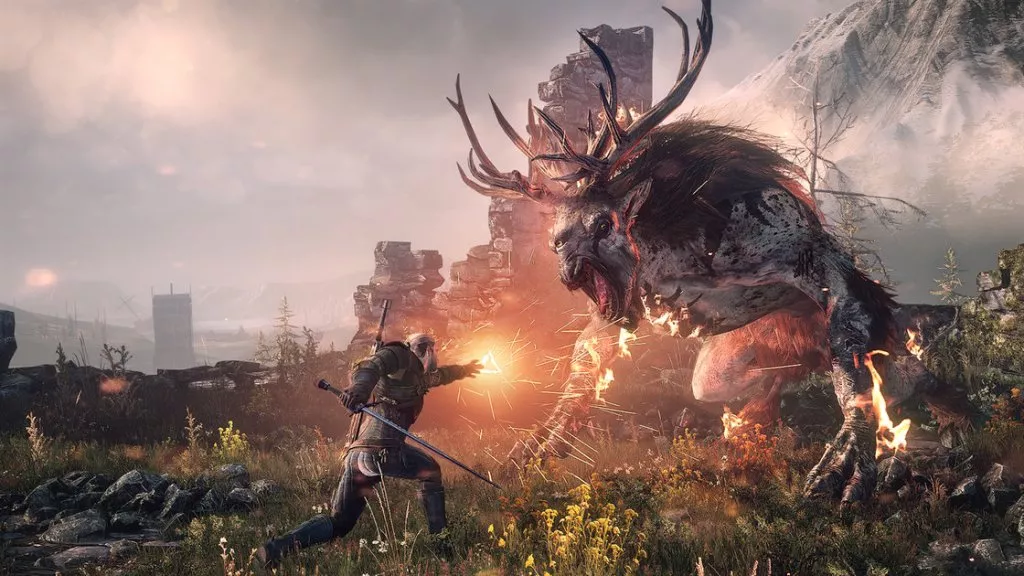
The depth of content in open-world games is well-known, with larger game worlds providing more opportunities for developers to add side quests and stories. The Witcher 3: The Wild Hunt takes this to another level, offering an incredibly dense narrative packed into every inch of its world.
At its core, The Witcher 3 follows Geralt as he searches for his adoptive daughter Ciri, but the main plot is anything but simple. It’s well-written and filled with captivating characters, and the game’s high replayability comes from the countless choices players make that can drastically alter the plot.
However, the true magic of The Witcher 3 lies in its side content. The game is overflowing with optional quests and stories that further expand the game world, many of which are just as good, if not better, than the main narrative. This achievement sets an incredibly high standard for similar games to strive for.
Star Wars: Knights of the Old Republic
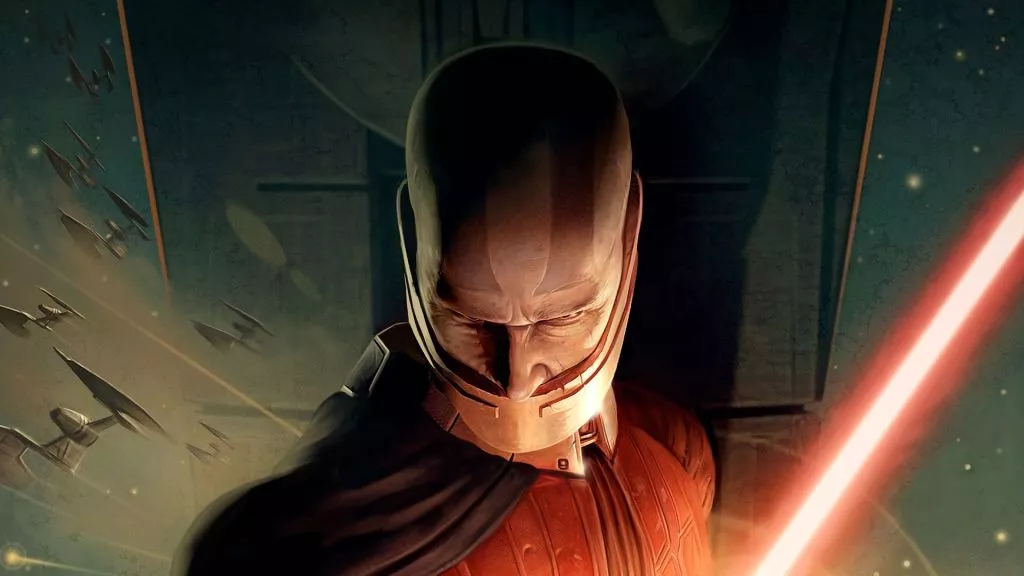
Star Wars: Knights of the Old Republic is a remarkable Star Wars story that boasts a multitude of exceptional elements. The characters, like the conflicted Bastila Shan and the morally ambiguous Jolee Bindo, are relatable and flawed. Additionally, traveling through the galaxy aboard the Ebon Hawk gives the game a distinct Star Wars feel. In every way that we typically evaluate Star Wars tales, this game is an incredible addition to the franchise.
However, what sets this space opera apart from others is the earth-shattering plot twist that fundamentally alters the story’s DNA. It’s not only one of the most outstanding surprises in Star Wars franchise history, but also one of the best twists in gaming history. This revelation is the primary reason why BioWare’s modern classic is still held in such high regard by fans today.
Portal 2
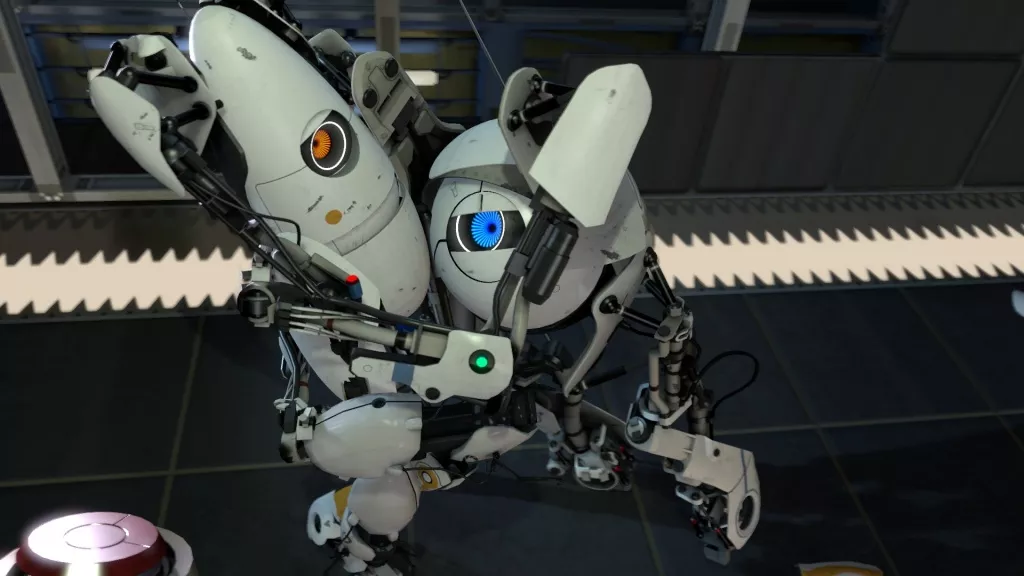
Portal 2 is a remarkable example of how intricate storytelling can be infused into even the most simplistic concepts. GLaDOS, the rogue AI, was already a beloved character by the end of the first Portal, but her transformation into an unlikely partner (in the guise of a potato) in the sequel made her even more remarkable. Meanwhile, Wheatley’s bumbling incompetence makes him an even more menacing antagonist.
J.K. Simmons’ outstanding voice acting as Aperture CEO Cave Johnson is also unforgettable. His monologue about lemons, which delves into the backstory leading up to the events of Portal, is one of the greatest pieces of writing in any game. Portal 2 is a rare gem that will have you laughing until the very end, yet it’s the underlying hints of a greater mythos and the unexpected emotional moments that will linger long after the laughter subsides.
Disco Elysium
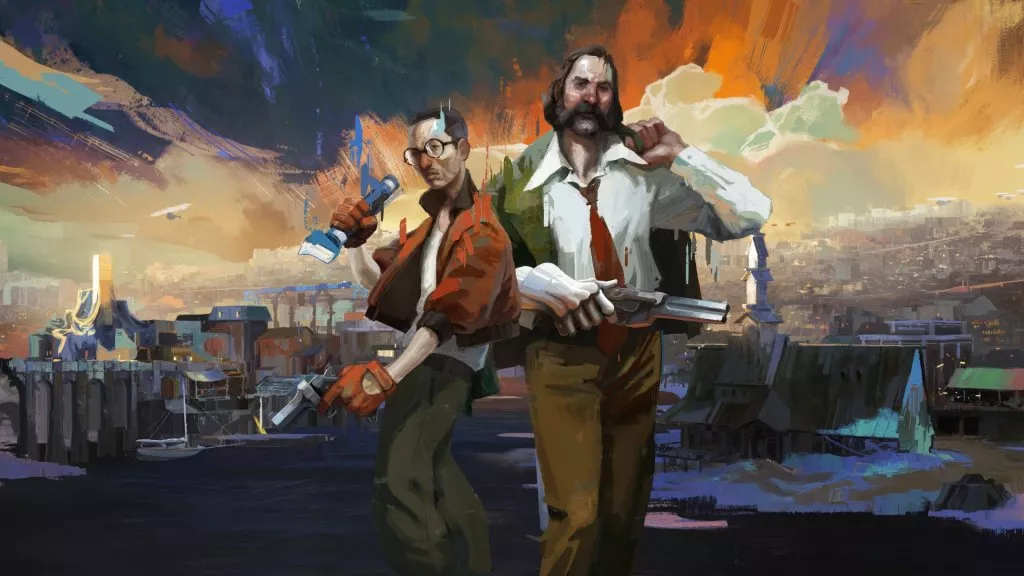
Revachol may not seem like an ideal vacation spot with its portrayal of mental illness and alcoholism, but Disco Elysium transforms it into a fascinating world where every decision you make reveals more about yourself than the flawed detective you control.
In this cleverly constructed society, the game invites players to immerse themselves in its fantastical elements while subtly commenting on the real world. Despite its satirical tone, the story is gripping, with a police officer protagonist navigating a society fractured by ideology.
The game’s narrative is not just about solving a murder mystery behind a union bar; it explores deeper themes through conversations with different characters from capitalist cronies to opportunistic comrades. While the story follows a linear path, players have multiple unique ways to progress, encouraging replayability for years to come. Disco Elysium is a game that not only entertains but also challenges players to examine their own values and beliefs.
Planescape: Torment
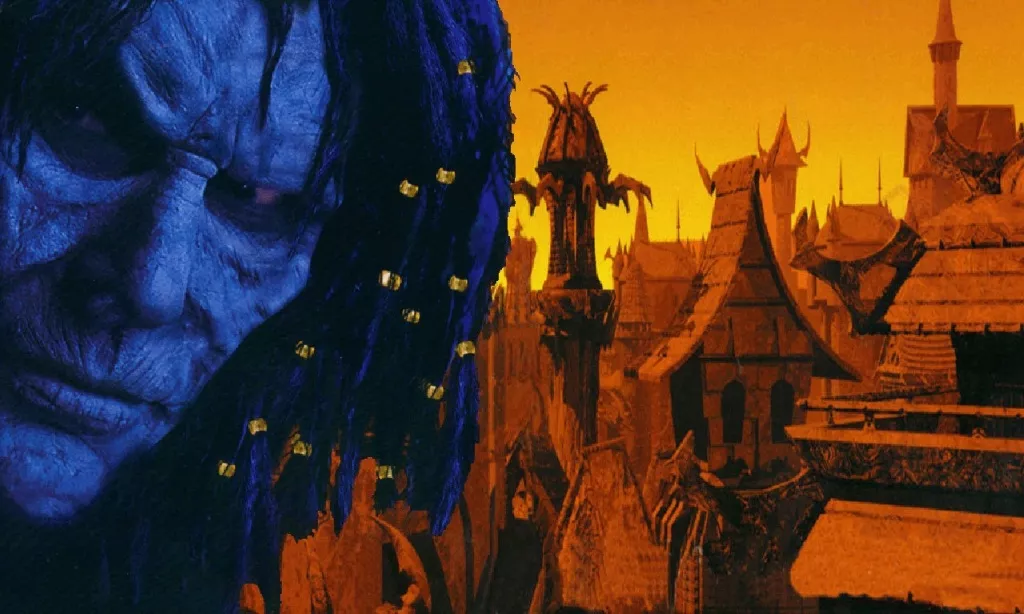
Rewritten: Most games with morality systems only scratch the surface, impacting character skills or potential allies. Planescape: Torment, on the other hand, revolves entirely around the question “What can change the nature of a man?” Its central narrative weaves morality into the very fabric of its story.
The game follows the Nameless One, an amnesiac who wakes up in a mortuary with no knowledge of his past. While the trope of an amnesiac protagonist may seem tired, it is critical to the Nameless One’s story. He’s a blank slate that players can mold, surrounded by charming and witty characters who change alongside him.
At its core, Planescape: Torment is a mystery. Who was the Nameless One before he lost his memory? Can you trust those around him? Can you even trust the Nameless One himself? Every plot twist provides answers, but it also raises new questions, making you question everything you thought you knew. The game’s vast world-building and scope enhance the narrative, making it a game that leaves you wanting more and questioning every decision you make.
Chrono Trigger
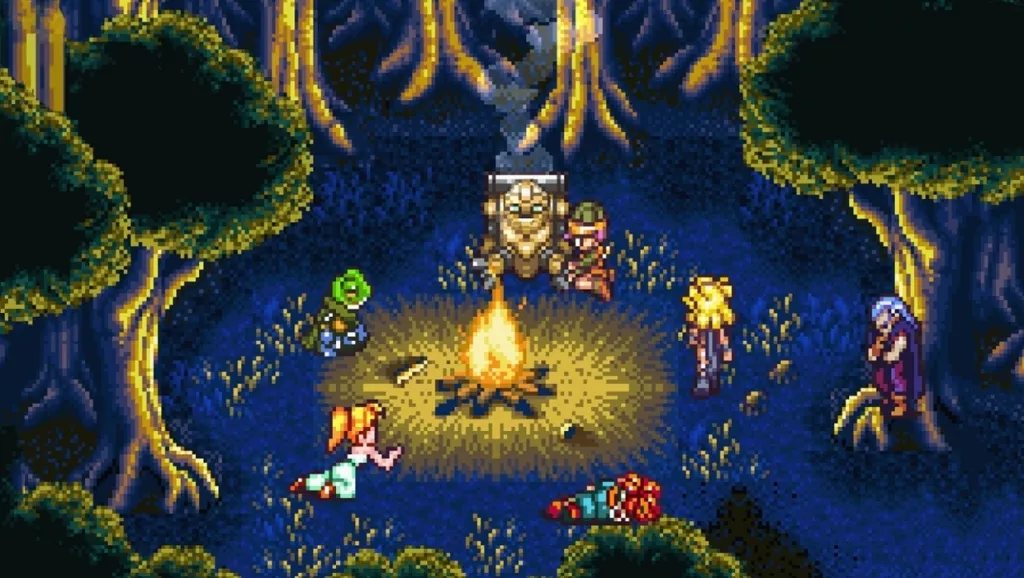
Chrono Trigger’s central plot revolves around time travel and saving the world, but it’s the exceptional storytelling that has cemented its place in gaming history. The game’s allure lies in the various eras you explore – from the prehistoric and medieval to the distant future and the end of the world. Through it all, the game’s remarkable characters come to life, including the tragic hero Frog and the optional Magus redemption arc.
To top it off, the game offers an impressive 13 different endings that all provide a satisfying conclusion to the story. This level of optional content is rare in games, and Chrono Trigger does it exceptionally well, with its intricately woven plot that ties everything together flawlessly. Despite its ambitious narrative, the game never loses its focus and maintains its pace, resulting in a timeless masterpiece of storytelling.
Silent Hill 2
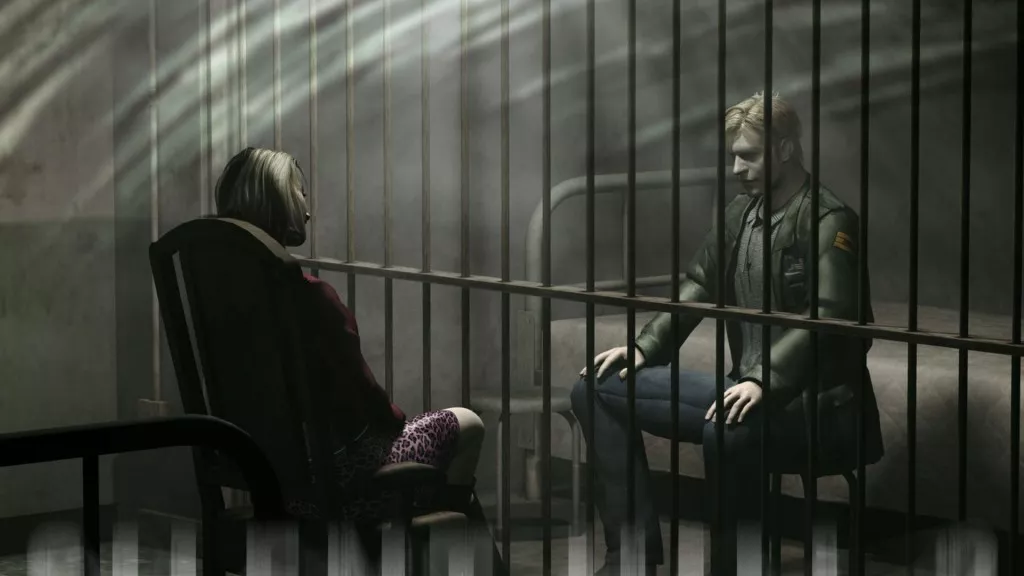
When discussing why people enjoy horror, the notion that individuals “like to be scared” is often brought up. While there is some truth to this idea, it seems like those who suggest it are referring to surface-level scares, like those found in a funhouse. However, this interpretation doesn’t necessarily apply to deeper, more psychological forms of horror. Instead, what if we are attracted to horror because we secretly desire some form of punishment?
This is just one of the many themes explored in Silent Hill 2. Playing as Harry Mason, you follow a letter from your supposedly deceased wife into the heart of Silent Hill. The game offers a masterful blend of both pre-set and dynamic narrative elements.
Unlike other games, Silent Hill 2 doesn’t present Harry Mason as a blank slate. He has his own personality, backstory, and fears. Throughout the game, we witness his fears materialize as monsters and other horrors in the town. However, the game is very much our own story. The choices we make as players are subtly reflected in the narrative, resulting in a deeply personal experience. Themes of suicide, sexual repression, and a desire to change the past are all woven into the game, creating a complex and emotional journey that binds the player to Harry Mason in an almost unbreakable way.
The Last of Us: Part 1
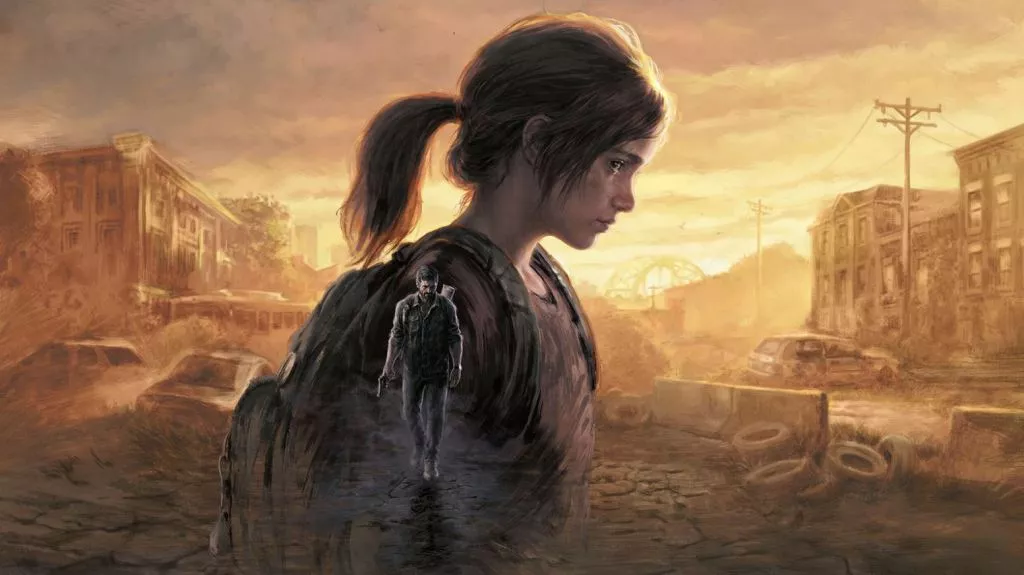
The Last of Us truly stands as a masterpiece when it comes to storytelling in video games, as demonstrated by the faithful adaptation of its best scenes in the hit HBO TV series. The fact that a game from 2013 can still captivate audiences and hold its own against prestigious TV dramas and movies a decade later is a testament to the enduring quality of its narrative.
Neil Druckmann and the team at Naughty Dog deserve immense credit for crafting a timeless tale that explores the darkest and most relatable aspects of human nature in a profoundly poetic manner. Joel and Ellie, the game’s protagonists, are exceptionally well-developed and psychologically complex characters. Through their journey towards “the light,” their relationship deepens, allowing players to intimately understand their fears and motivations. This level of character depth creates a strong emotional connection, making the game’s tragic conclusion all the more impactful.
The Last of Us has not only delivered an exceptional story but has also set a new standard for storytelling in the medium of video games. It serves as an inspiration and influence for future game developers, challenging them to reach the same heights of narrative excellence. The game’s success paves the way for the evolution of storytelling in video games, promising even more engaging and emotionally resonant experiences in the years to come.

